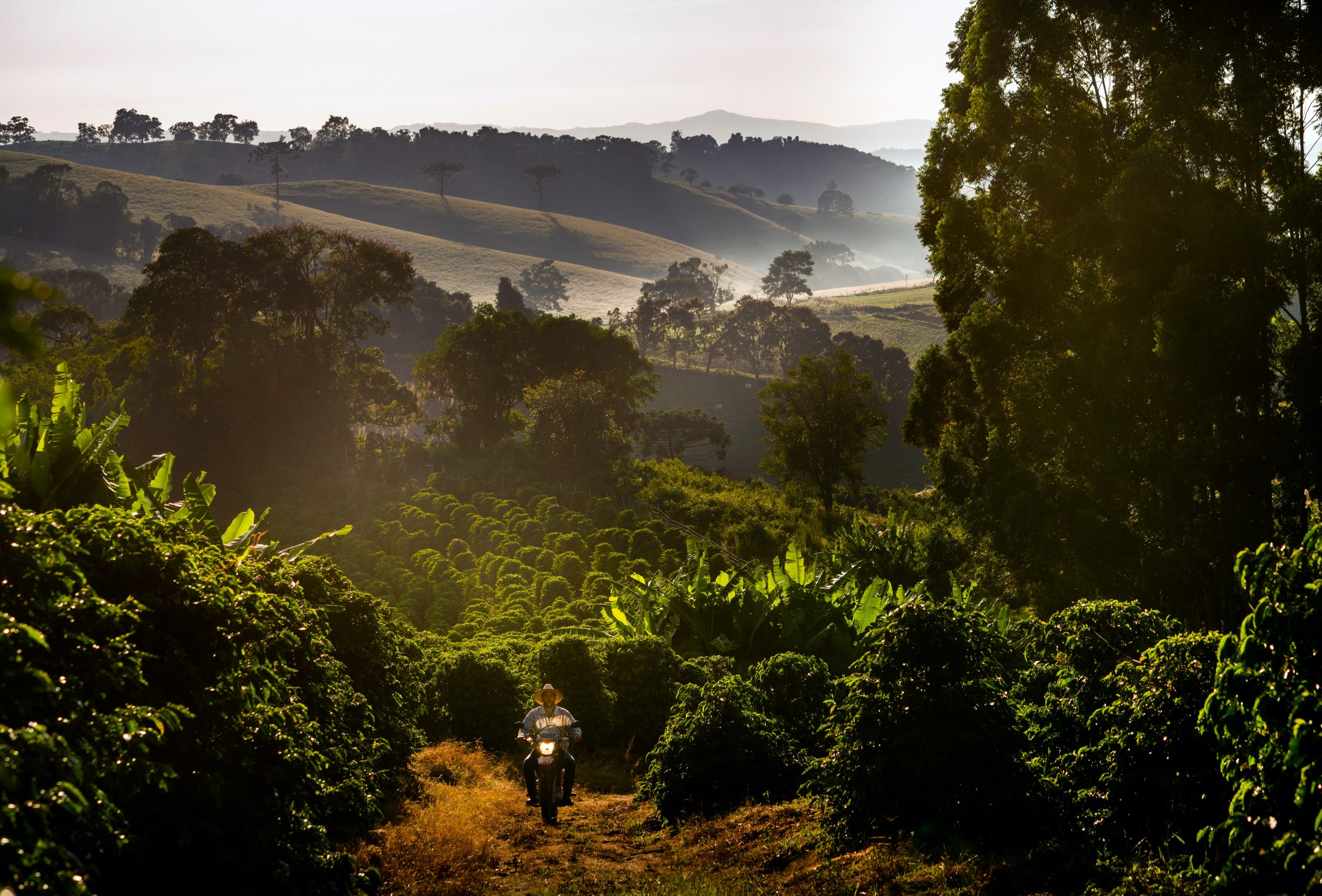Brazil Sul De Minas FAF Serra do Caracol Community Natural Arara – Lot 4940 – 32572 – GrainPro Bags – SPOT RCWHSE
Position Spot
Bags 0
Warehouses Oakland
Flavor Profile Grape jelly, lime, pear, peanut butter, caramel, milk chocolate
Out of stock
About this coffee
Grower
Adonis Cerri | Fazenda da Mata
Altitude
1200 – 1400 masl
Variety
Arara
Soil
Latosols
Region
São Sebastião de Grama, São Paulo state, Brazil
Process
Natural, dried on raised beds
Harvest
June - August
Certification
Conventional
Coffee Background
Adonis Cerri is a small farmer in the mountainous Grama Valley region in Brazil. His coffee is a rare mixture of small scale and high quality, carefully picked and dried on raised beds in the cold high-elevation climate. This type of production more closely mimics Colombia than the vast, mechanized estates that dominate Brazil’s coffee imagery. This particular lot, a natural processed 100% arara, is bright and zesty with a deep sweet sweetness reminiscent of molasses and candied pecan.
Mogiana and its Small Farmers
The Mogiana region of Brazil is a small designation of coffee origin along the border between São Paulo and Minas Gerais states. The region has a long history of agriculture, mining, and, more recently, cash-cropping. Waves of European settlers aggressively transformed large portions of Brazil’s inland savannah over many generations of colonial development, beginning with sugar cane and then quickly favoring coffee as consumption grew across the global north. São Paulo state includes some of Brazil’s oldest coffee history, with one of the country’s first rail-to-port transportation pipelines serving the state’s main coffee port of Santos—whose title would be the namesake grade of commercial coffee from Brazil for many years.
In Mogiana, however, the landscape tends to be dense and steep, cut with deep river valleys and high ridgelines. Coffee farms here reach over 1300 meters, considered quite high and challenging for arabica in such southern latitudes.
While it’s true that 500+ hectare estates dominate Brazil’s production, still about half of the country’s coffee farmers have small, family-managed operations, processing at home and selling to local growers’ organizations to earn their living. Smaller farms tend to be clustered in the more difficult landscapes for coffee efficiency—the ones that are steep and forested, difficult to access, or at higher elevations where the climate is more challenging for coffee to thrive. Mogiana, like its neighboring Sul de Minas region, is one such area.
FAF Coffees and the “Other” Brazil
FAF Coffees is a specialty exporter in Brazil founded by the Croce family. During their years spent struggling to revive the soils of their own family farm in the Mogiana region, the Croce family connected with like-minded small growers struggling as well to make farming viable for the next generation. Over time, the Croce family estate, “Fazenda Ambiental Fortaleza” (Environmental Fortress Farm), started sharing their approach to land management, and exporting other producers’ coffees to buyers they had come to know.
Farmers working with FAF have a strong focus on their immediate ecosystems—the watersheds and canopies that made the land worth living on—as well as quality in the cup, as a means to economic independence and self-esteem. Over the years the Croce family's network of farmers grew. FAF now exports coffee on behalf of more than 250 small and sustainable farms throughout the Mogiana, Sul de Minas, and Caparaó regions. In all places they have mobilized entrepreneurial small growers dedicated to the same combination of cup quality, environmental health, and community strength, exuberantly referred to in the FAF network as “total quality”.
Fazenda da Mata
Fazenda da Mata, located at the top of the Grama Valley outside São Sebastião de Grama, is considered very high in elevation for Brazil. At 1400 meters the nights are very cold, slowing coffee fruit maturation and drying periods. Adonis’ coffee is picked late in the year and takes weeks to dry—a completely different timeline from the rest of the country.
Adonis has been working with FAF for several years, and serves as a community leader among local farmers interested in refining their soil and canopy management, as well as boosting their cup quality.
Arara is a Brazilian cultivar, first discovered in the 1980s as a natural cross between Obatã (itself a hardy, high quality cross of Timor Hybrid and Villa Sarchi) and yellow Catuaí. Many agree that when produced very well the cultivar expresses uniquely high acidity for Brazilian coffee, and as a result presents very articulate flavors. “Arara” is the name of a type of macaw in Brazil, known for its vibrant colors.





